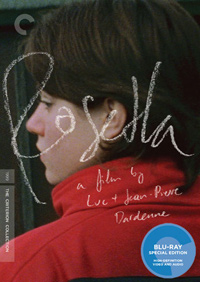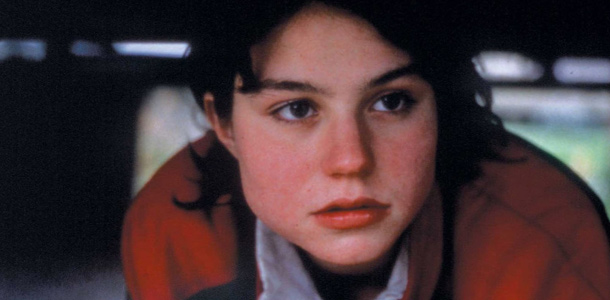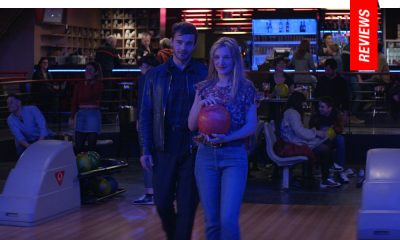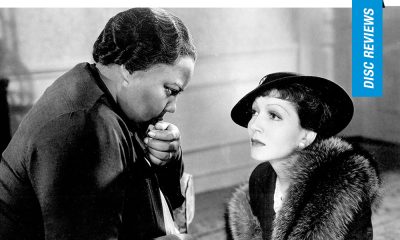Reviews
Criterion Collection: Rosetta | Blu-ray Review
 While there have been many coming of age films about teenage girls, it’s safe to say none have been quite like Rosetta, Luc and Jean-Pierre Dardenne’s Palme d’Or winner from 1999. Finally getting its long awaited North American video release by Criterion, Rosetta is a film that will shock viewers with its raw, jagged energy and unvarnished realism. Watching the film is an experience akin to having dirt thrown in your face, leaving viewers to spit out specks of grit while a destitute young woman wages war with society, her family and herself.
While there have been many coming of age films about teenage girls, it’s safe to say none have been quite like Rosetta, Luc and Jean-Pierre Dardenne’s Palme d’Or winner from 1999. Finally getting its long awaited North American video release by Criterion, Rosetta is a film that will shock viewers with its raw, jagged energy and unvarnished realism. Watching the film is an experience akin to having dirt thrown in your face, leaving viewers to spit out specks of grit while a destitute young woman wages war with society, her family and herself.
Played by 17 year old Émilie Dequenne, Rosetta lives a hand-to-mouth existence in a decrepit trailer park on the dingy outskirts of Liége, Belgium. Rosetta’s mother (Anne Yernaux) is an alcoholic who has given up on life, and spends her days huddled about the camper in a torpid funk. So determined is Rosetta not to end up like her mother she lives her life in a constant whirlwind of motion. Whether it’s running into town to look for work, checking on her secret fish traps, or dumpster diving for discarded clothes, young Rosetta’s nervous energy allows her not a moment’s rest. Her desire for a steady job has reached the level of obsession, as Rosetta’s sees employment as the only meaningful affirmation of her worth. While her initiative and determination may be commendable, Rosetta’s neediness and shame cause her to strangely withdraw from society, making it impossible for any well-intentioned soul to help her. The harder she tries to escape from poverty, the farther she drifts towards a life of savagery.
With Rosetta the Dardennes fully embraced what would become their defining style – derisively known “following the back of someone’s head” – and it bestows the film with an unnerving sense of intimacy and desperation. Alain Marcoen’s camera, always placed extremely close to Dequenne, renders her anguished fits and starts with the urgent chaos of combat photography. Yet our deep awareness of Dequenne’s physicality ironically serves to distance us from the character, as she remains an unpredictable and potentially dangerous cypher. The emotional walls she uses for protection cannot be breeched even by the viewer, despite our detailed knowledge of her innermost secrets. Dequenne would win the best actress award at Cannes for this performance, and her ability to lose herself in the film’s swirling maelstrom, usually with a camera lens just inches from her face, bespoke confidence and skill far beyond her years. Her stunning work in Rosetta is nothing short of a revelation, and is an achievement of rare splendor.
Dequenne’s embodiment of Rosetta also stands as a testament to the visionary courage of the Dardennes, as the brothers approach each scene with an uncompromising eye for human seediness. Their willingness to risk their main character’s likability creates moments that successfully balance empathy with disgust, and creates a richly dense mosaic of this deeply troubled soul. The Dardennes present their story with a relentless rhythm that both fascinates and repels, intensifying their construction of a young life in flight from the wreckage of her past. Even though the Dardennes work exclusively in master shots, the contributions of their perennial editor Marie-Hélène Dozo are indispensable. Dozo’s instinctual grasp of defining moments is apparent throughout her filmography, including such non-Dardenne productions as Bénédicte Liénard’s A Piece of Sky (2002) and Mahamat-Saleh Haroun’s A Screaming Man (2010). These films benefitted greatly from Dozo’s rhythmic alchemy, and her technique of extending the ends of scenes slightly beyond their logical cut points creates a mesmerizing sense of dramatic aftermath. She can up-cut with the best of them too, and Rosetta’s opening sequence, in which Dequenne is forcefully escorted from a bakery, seamlessly combines several takes into a montage that organically establishes Rosetta’s fierce and destructive stubbornness.
Disc Review
Rosetta is a film of murky textures and unfiltered atmospherics, and Criterion’s hi-def transfer captures every brisk and biting moment. Dequenne’s baby-face complexion serves as the perfect foil for her deep personal bitterness, and the crisp detail of the image adds to her character’s complexity. With an aspect of 1.66:1, Rosetta seems to leap from the screen with a tactile aura of grunge.
The audio, presented in 2.0, is alive with sounds of traffic and the clamor of reality. In quiet scenes, Dequenne’s often labored breathing punches through with immediacy. Overall, the mix is well balanced and perfectly suited to the material.
Conversation between film critic Scott Foundas and filmmakers Luc and Jean-Pierre Dardenne
Foundas and The Dardennes chat for a little over an hour, and the results are interesting and intriguing. The Brothers discuss their vision of Rosetta, and their desire to deconstruct the classic notion of “Sweet 16”. The casting of Dequenne is recounted, including the elaborate processes used to define her character. The nuts and bolts of the Dardenne style is described at length, providing a rare glimpse into their unique and inventive procedures. Fans of the Dardennes, and European cinema in general, will find this supplement fascinating.
New interview piece featuring actors Émilie Dequenne and Olivier Gourmet
In this 18 minute segment, Dequenne and Gourmet expound at length on the making of Rosetta, and clearly it was a profound experience for each of them. Dequenne was awarded the role after answering a newspaper ad, and surviving a lengthy series of callbacks. She discusses how the Dardennes helped her build a complex character simply with jerky, hostile movements, and tricks used to enhance the effect, such as uncomfortable shoes and clothing. Gourmet, who has had a long relationship with the Dardennes, offers some revealing insights into their techniques, and talks about how he learned to think of the camera as just another actor. Recommended viewing for Dardenne aficionados.
A booklet featuring an essay by film critic Kent Jones
Jones’ essay, fittingly entitled “Radical Economy”, is an astute dissection of Rosetta and is a pleasure to read. The 14 page booklet also includes frame blowups and production credits.
Final Thoughts
Previously unavailable to North American viewers, save for a few sporadic showings on the Sundance Channel, the long and frustrating wait for Rosetta on disc has finally ended. The intervening years have not diminished its emotional wallop, and indeed the perspective of 2012 has given this tale of class struggle an added resonance. Rosetta was made in 1999, during a period of relative economic plenty. In these days of lingering devastation from the 2008 financial crisis, it’s not hard to imagine a world filled with scruffy young Rosettas, struggling to survive in a landscape devoid of opportunity and basic compassion. Here, Émilie Dequenne embodies the combative nature of society’s forgotten souls. And while her desperate scenario has played out innumerable times in the years hence, the Dardennes present her story with such stark and brutal frankness only the most callous viewer will remain unmoved. Rosetta disturbs, haunts and mystifies, and remains an unrivaled cinematic excursion into the somber realm of the ultra real.

































